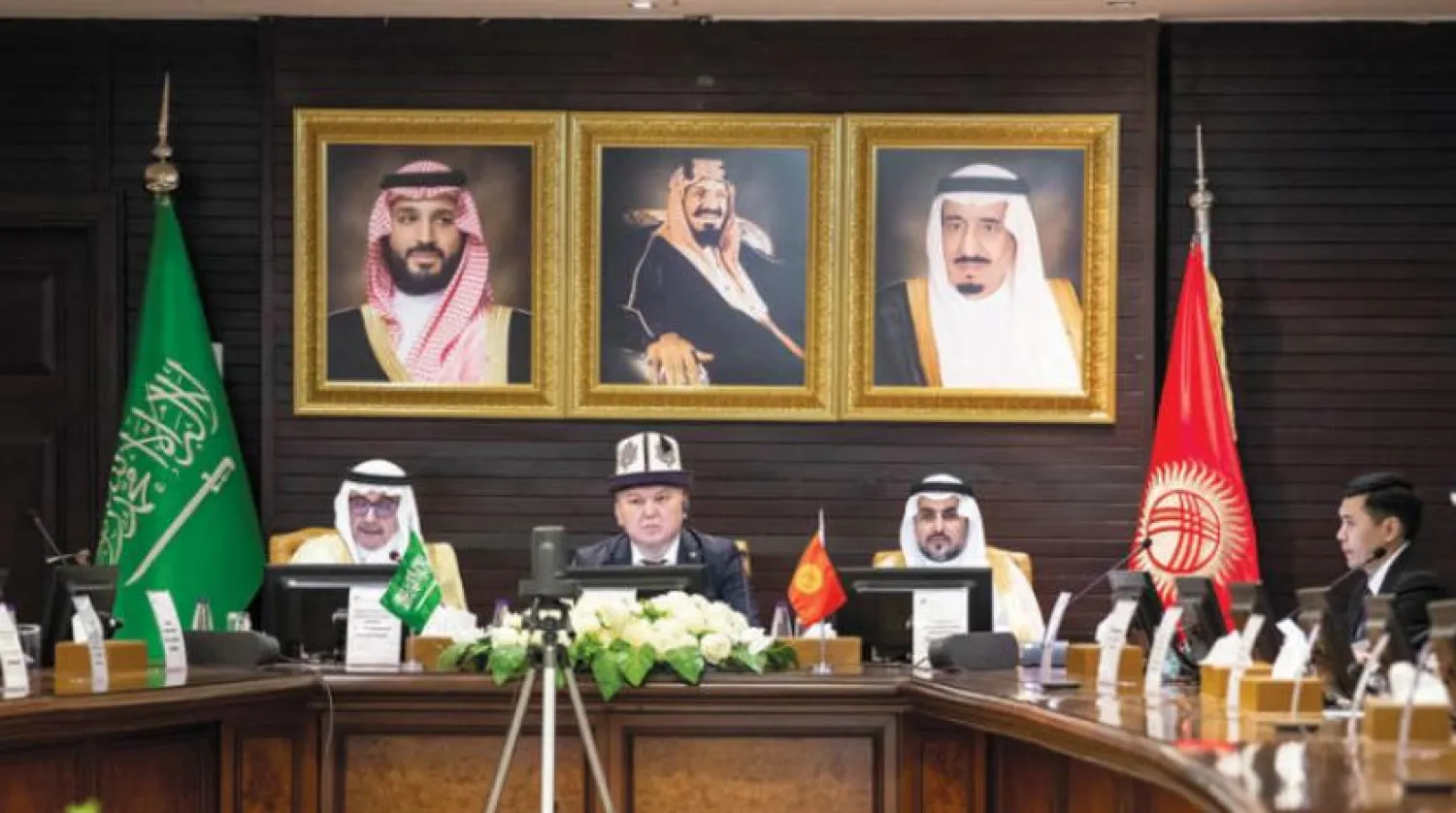A high-level Kyrgyz delegation discussed in Riyadh on Sunday means of bolstering ties with Saudi Arabia.
Both sides signed five agreements that will increase trade exchange and launch joint investments in the energy, renewable energy, food and electronic industries, agriculture, transport, culture, sports and tourism sectors.
First Deputy Prime Minister of Kyrgyzstan Arzybek Kozhoshev underscored the importance of providing an investment environment that attracts foreign investors, including Saudi partners, and boosting mutual trade as a top priority of his country’s economic policy.
He revealed that 50 Kyrgyz companies from various sectors are taking part in the Saudi-Kyrgyz Business Forum, which kicked off on Sunday.
Participants aim to establish and develop ties with Saudi companies, Kozhoshev said, stressing that Kyrgyzstan hopes to attract major Saudi companies to invest in the fields of agriculture, renewable energy, science, education, tourism, telecommunications, culture and halal industries.
He underlined his country’s economic capabilities, mainly in the tourism sector, noting that Saudi nationals can visit Kyrgyzstan without a visa for a period of up to 60 days. He said that around 7,000 Saudis visited Kyrgyzstan in 2019.
Nursultan Oronbayev, General Adviser to the Kyrgyz Minister of Trade, told Asharq Al-Awsat that his country looks forward to expanding its cooperation strategy with the Kingdom and targets increased investment and trade exchange in several fields.
He said both sides agreed to open direct flights between Riyadh and Bishkek, while remarking that the coronavirus pandemic has significantly affected economic growth.
He added however, that his country is currently recovering from the health crisis and economic growth has so far exceeded five percent.









